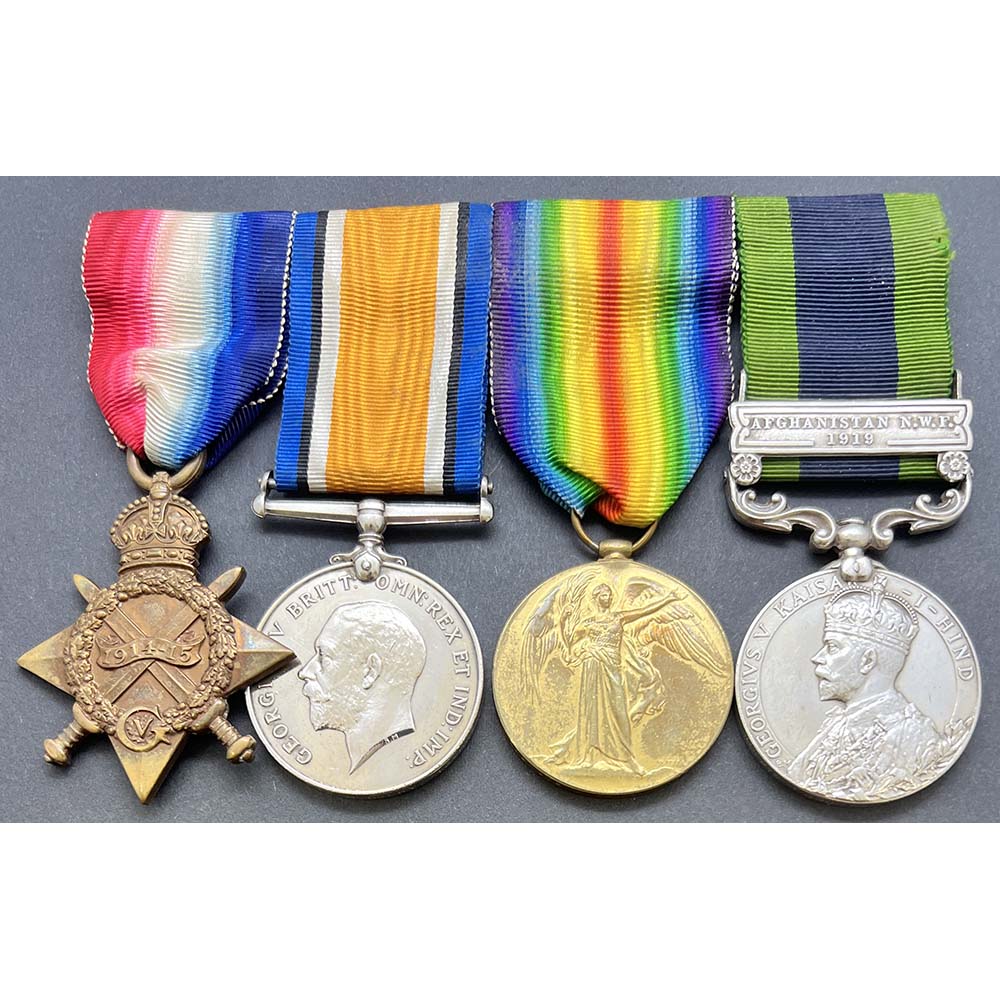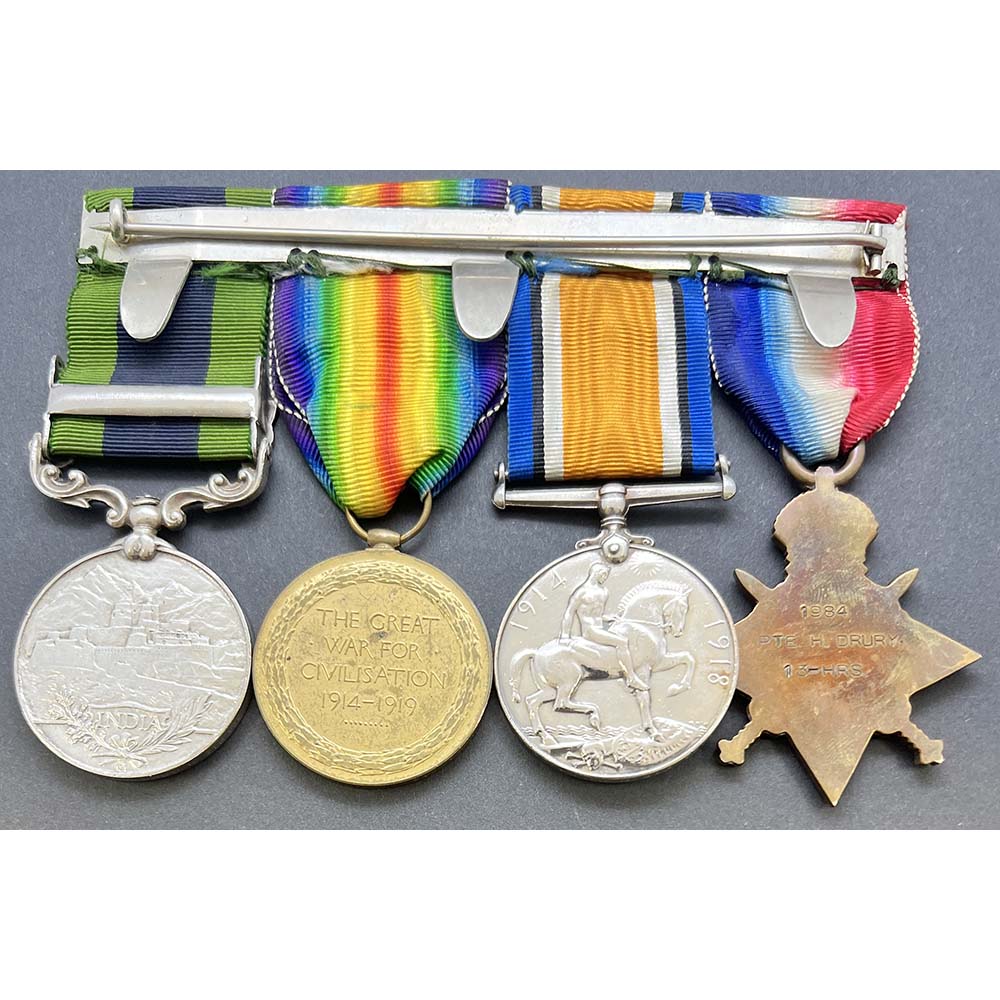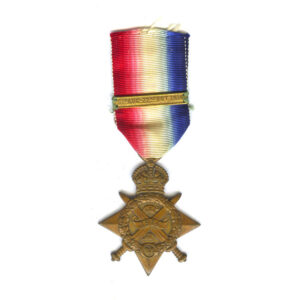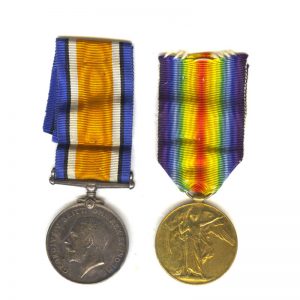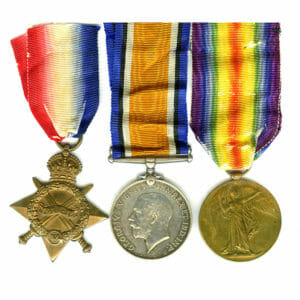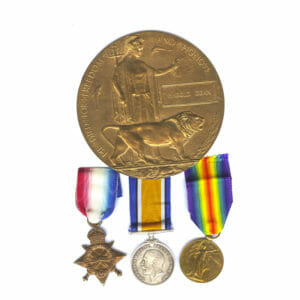Description
1914-15 Star Trio, India General Service Medal 1908, bar Afghanistan N.W.F. 1919, 1984 Private Harry Drury, 13th Hussars, 1st King’s Dragoon Guards in Afghanistan.
Trio officially impressed: “1984 Pte H. Drury 13-Hrs.”
IGSM Officially impressed: “1984 Pte H. Drury. 1 K D Guards”
Group swing mounted for wear on old ribbons.
According to his entry in the Royal Tank Corps books, Harry Drury was born during 1886, in Folkestone Kent.
Son of Frederick Drury of Colesworth Road, S. Willesboro near Ashford.
He first attested for service aged 22 & 3 months on 21st January 1908, having worked as a Groom.
The 1911 Census records him as a soldier serving with the 13th Hussars in Meerut.
He served with the British Expeditionary Force in France from 19th December 1914 until 26th June 1916. He narrowly missed out on the 1914 Star.
Seeing further service overseas in the Mesopotamia Theatre in Iraq from 27th June 1916 until 25th November 1919.
He was discharged at Canterbury on 20th January 1920 at the end of his period of engagement, his conduct noted as “Exemplary”.
Intending to return home to Ashford, Kent.
13th Hussars in the Great War.
Stationed in Meerut on outbreak of WW1, they landed in Marseille with the 7th Meerut Cavalry Brigade, 2nd Indian Cavalry Division in December 1914.
They moved to Mesopotamia in July 1916.
Notably they fought in the 2nd Battle of Kut, February 1917, the Capture of Baghdad in March 1917 and the Battle of Sharqat in October 1918.
At Sharquat, the 13th Hussars charged the hill where the Turkish Guns were, and made a dismounted charge up it with fixed bayonets, successfully capturing the guns, Ismail Hakki Bey, Turkish Commanding Officer, was aware of the ongoing peace talks at Mudros, and decided to spare his men rather than fight or break out, surrendering on 30th October 1918.
He then appears to transfer over to the 1st King’s Dragoon Guards, who were engaged after the end of the war in Afghanistan during 1919.
Being mobilised on 6th May 1919, with the 1st Risalpur Cavalry brigade, they fought throughout the campaign and were in action at the Khyber Pass.
Another piece of history was made at Dakka, a village in Afghan territory, NW of the Khyber Pass, when on 16th May 1919, the 1st K.D.G. made one of the final recorded charges by a British Horsed Cavalry regiment in action, shortly afterwards the cavalry was mechanised.
